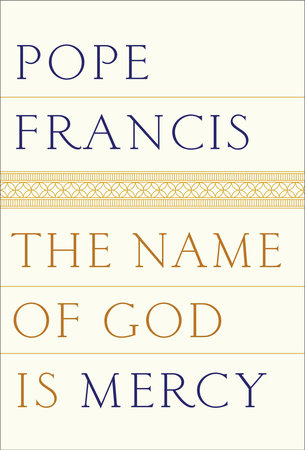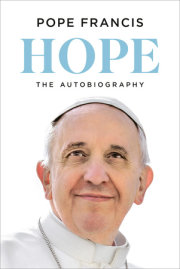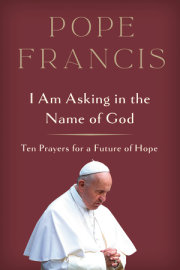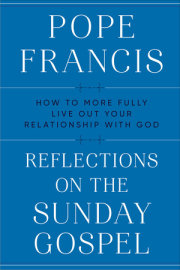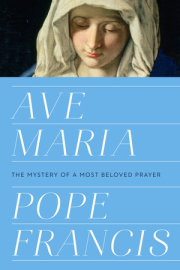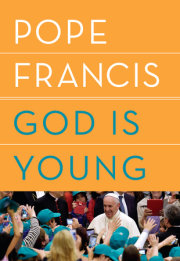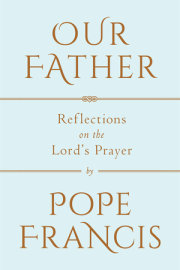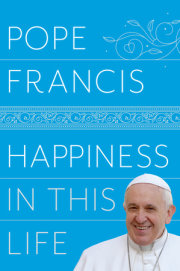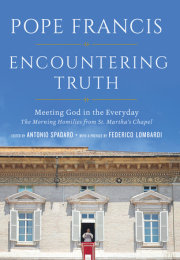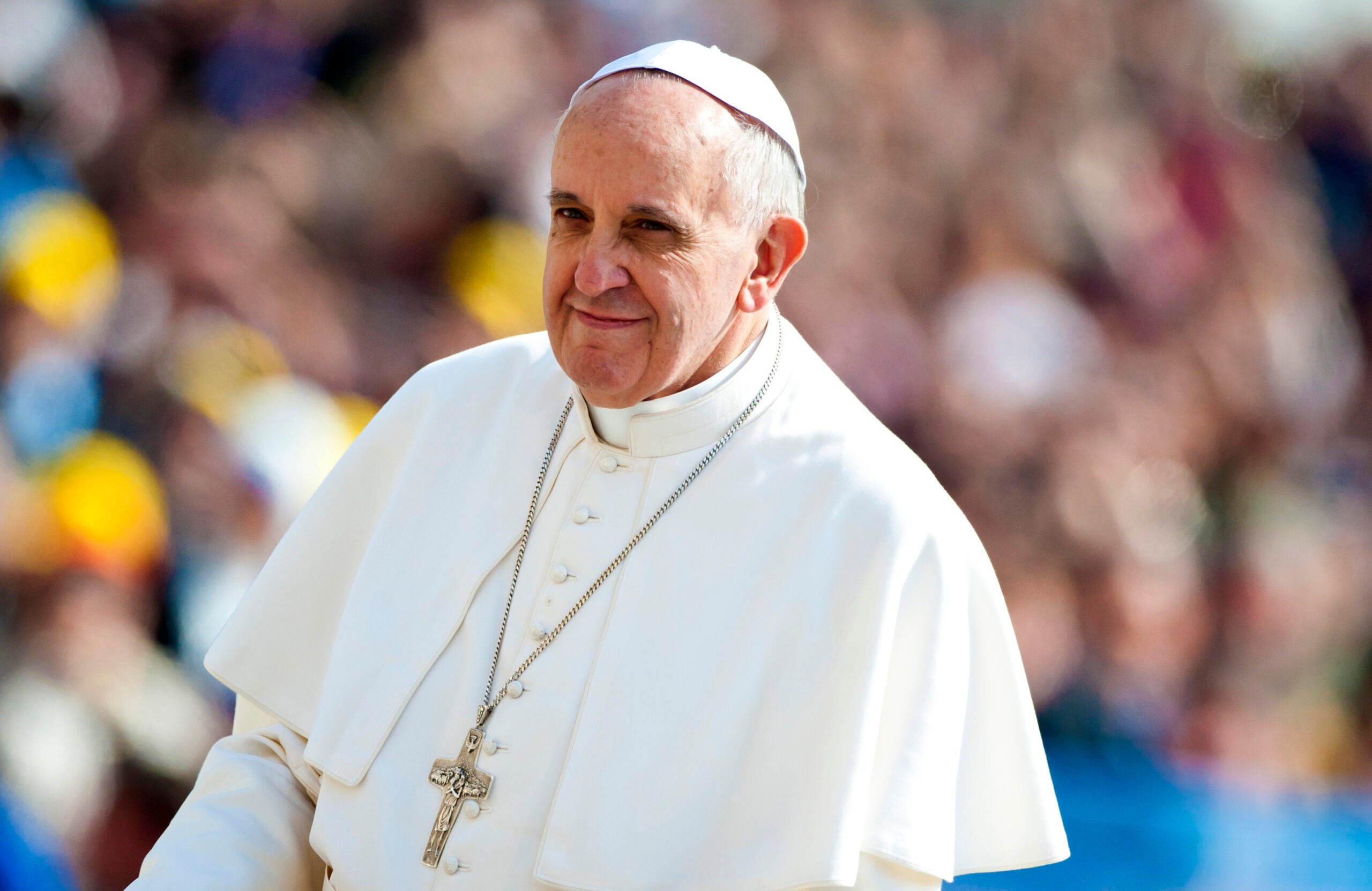I
a Time for Mercy
Holy Father, can you tell us how the desire to proclaim a Holy Year of Mercy was born? Where did the inspiration come from?
There was no particular or defining moment. Things come to me by themselves, they are the ways of the Lord, and they are preserved in prayer. I am inclined never to trust my first reaction to an idea or to a proposal that is made to me. I never trust myself in part because my first reaction is usually wrong. I have learned to wait, to trust in the Lord, to ask for his help, so I can discern better and receive guidance.
I can say that the centrality of mercy, which for me is Jesus’ most important message, has slowly evolved over the years in my work as a priest, as a consequence of my experience as a confessor, and thanks to the many positive and beautiful stories that I have known.
As early as July 2013, only a few months after being named Pope, when you were returning from Rio de Janeiro, where the World Day of Youth had been celebrated, you said that ours is a time of mercy.
Yes, I believe that this is an age of mercy. The Church is showing her maternal side, her motherly face, to a humanity that is wounded. She does not wait for the wounded to knock on her doors, she looks for them on the streets, she gathers them in, she embraces them, she takes care of them, she makes them feel loved. And so, as I said, and I am ever more convinced of it, this is a kairós, our era is a kairós of mercy, an opportune time. When John XXIII solemnly opened the Second Vatican Ecumenical Council, he said, “The Bride of Christ prefers to use the medicine of mercy rather than arm herself with the weapons of rigor.” In his meditation “Thoughts on Death,” the blessed Paul VI revealed the essence of his spiritual life in the synthesis proposed by Saint Augustine: poverty and mercy. “My poverty—Pope Montini wrote—the mercy of God. That I may at least honor who you are, God of infinite bounty, invoking, accepting, and celebrating your sweet mercy.” Saint John Paul II took the notion further with his encyclical Dives in Misericordia, in which he affirmed that the Church lives an authentic life when it professes and proclaims mercy, the most amazing attribute of the Creator and Redemptor, and when it leads humanity to the font of mercy. In addition, he instituted the festivity of Holy Mercy, endorsed the figure of Saint Faustina Kowalska, and focused on Jesus’ words on mercy. Even Pope Benedict XVI also spoke of this in his teachings: “Mercy is in reality the core of the Gospel message; it is the name of God himself, the face with which he revealed himself in the Old Testament and fully in Jesus Christ, incarnation of Creative and Redemptive Love. This love of mercy also illuminates the face of the Church, and is manifested through via the Sacraments, in particular that of the Reconciliation, as well as in works of charity, both of community and individuals. Everything that the Church says and does shows that God has mercy for man.”
I also have many personal memories of other episodes related to the subject. For example, before coming here, when I was in Buenos Aires, I specifically recall a roundtable discussion with theologians. The topic was what the Pope could do to bring people closer together; we were faced with so many problems that there seemed to be no solution. One of the participants suggested “a Holy Year of forgiveness.” This idea stayed with me. And therefore, to answer your question, I believe that the decision came through prayer, through reflection on the teachings and declarations of the Popes who preceded me, and by thinking of the Church as a field hospital, where treatment is given above all to those who are most wounded. A Church that warms people’s hearts with its closeness and nearness.
What is mercy for you?
Etymologically, “mercy” derives from misericordis, which means opening one’s heart to wretchedness. And immediately we go to the Lord: mercy is the divine which embraces attitude, it is God’s giving himself to us, accepting us, and bowing to forgive. Jesus said he came not for those who were good but for the sinners. He did not come for the healthy, who do not need the doctor, but for the sick. For this reason, we can say that mercy is God’s identity card. God of Mercy, merciful God. For me, this really is the Lord’s identity. I was always impressed by the story of Jerusalem as it is told in chapter 16 of the Book of Ezekiel. The story compares Jerusalem to a little girl whose umbilical cord wasn’t cut, who was left in her blood and was cast out. God saw her wallowing in blood, he washed the blood from her, he anointed her, he dressed her, and when she grew up he adorned her with silk and jewels. But she, infatuated with her own beauty, became a harlot, not for money but paying her lovers herself. God, however, will never forget his covenant and he will place her above her sisters so that Jerusalem will remember and be ashamed (Ezekiel 16:63), when she is forgiven for what she has done.
For me this is one of the most important revelations: you will continue to be the chosen people and all your sins will be forgiven. So mercy is deeply connected to God’s faithfulness. The Lord is faithful because he cannot deny himself. This is explained well by Saint Paul in the Second Letter to Timothy: “If we are faithless, he remains faithful, for he cannot deny himself.” You can deny God, you can sin against him, but God cannot deny himself. He remains faithful.
What place and meaning do mercy have in your heart, life, and personal history? Do you remember your first experience of mercy as a child?
I can read my life in light of chapter 16 of the book of the prophet Ezekiel. I read those pages and I say: everything here seems written just for me. The prophet speaks of shame, and shame is a grace: when one feels the mercy of God, he feels a great shame for himself and for his sin. There is a beautiful essay by a great scholar of spirituality, Father Gaston Fessard, on the subject of shame in his book The Dialectic of the “Spiritual Exercises” of St. Ignatius of Loyola. Shame is one of the graces that Saint Ignatius asks for during his confession of his sins before Christ crucified. That text from Ezekiel teaches us to be ashamed, it shows us how to feel shame: with all our history of wretchedness and sin, God remains faithful and raises us up. I feel this. I don’t have any particular memories of mercy as a young child. But I do as a young man. I think of Father Carlos Duarte Ibarra, the confessor I met in my parish church on September 21, 1953, the day the Church celebrated Saint Matthew the apostle and Evangelist. I was seventeen years old. On confessing to him, I felt welcomed by the mercy of God. Ibarra was originally from Corrientes but was in Buenos Aires to receive treatment for leukemia. He died the following year. I still remember how when I got home, after his funeral and burial, I felt as though I had been abandoned. And I cried a lot that night, really a lot, and hid in my room. Why? Because I had lost a person who helped me feel the mercy of God, a person who helped me understand the expression miserando atque eligendo, an expression I didn’t know at the time but which I would eventually choose as my episcopal motto. I learned about it later, from the homilies of the English monk Venerable Bede. When describing the calling of Matthew, he writes: “Jesus saw the tax collector, and by having mercy chose him as an Apostle, saying to him, ‘Follow me.’ ” This is the translation commonly given for the words of Saint Bede. I like to translate miserando with another gerund that doesn’t exist: mercifying. So, “mercifying and choosing” describes the vision of Jesus, who gives the gift of mercy and chooses, and takes unto himself.
Copyright © 2016 by Pope Francis. All rights reserved. No part of this excerpt may be reproduced or reprinted without permission in writing from the publisher.





